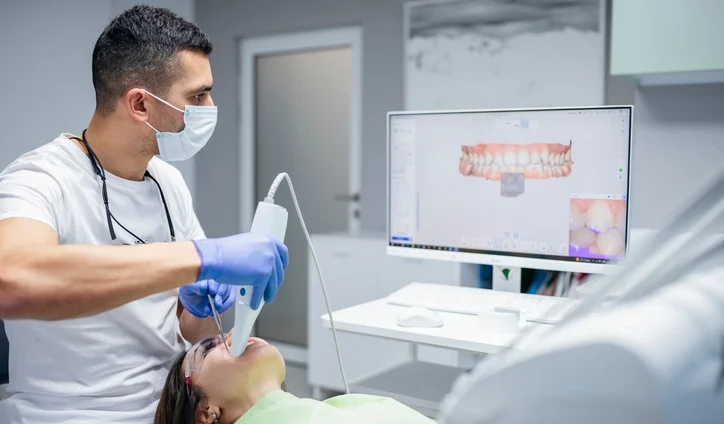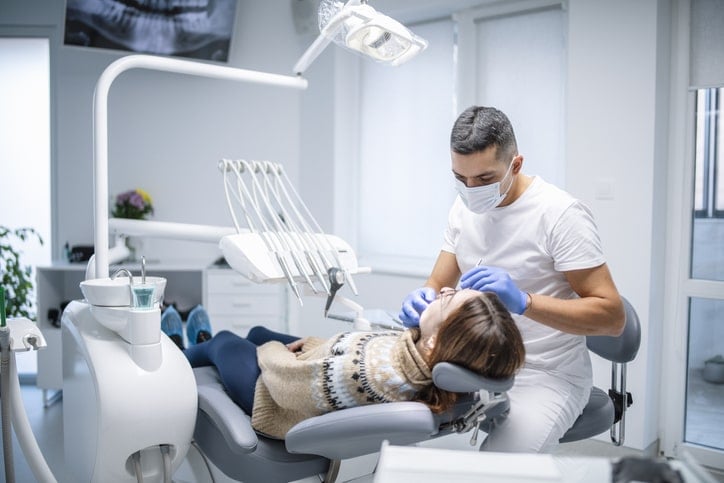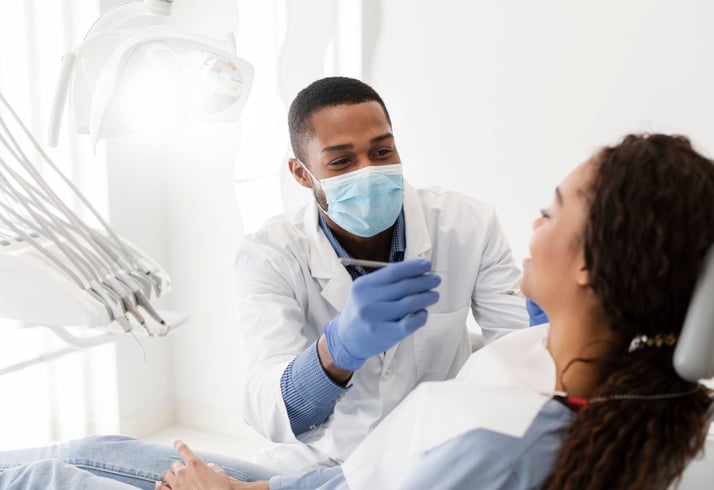
Digital Impressions vs. Traditional Molds in Dentistry: What You Need to Know
Dentists are always looking for tools and techniques that enhance patient outcomes, improve efficiency, and modernize their practice. One innovation that’s transforming the dental industry is the rise of digital impressions. Unlike the messy and time-consuming process of taking traditional molds, digital impression technology offers a streamlined and accurate alternative that's redefining patient experiences.
But when it comes to adopting new dental technology, it's essential to weigh the benefits against the traditional methods. This blog dives deep into the differences between digital impressions and traditional molds, highlights their advantages, and explains why integrating AI-driven dental technology into your practice could give you a competitive edge.
What Are Digital Impressions?
Digital impressions use advanced scanning technology to create a precise, 3D representation of a patient’s teeth and gums. With digital impression systems, dentists capture detailed images—through a handheld wand scanner—used for orthodontic work, crowns, bridges, and more. The result? An accurate digital model, ready for design and fabrication, often within minutes.
How do Digital Impressions Compare to Traditional Molds?
Traditional molds require trays filled with impression materials, like alginate or polyvinyl siloxane, to capture the structure of a patient’s teeth. While effective, this process can be time-intensive, messy, and uncomfortable for patients. Digital impressions eliminate these drawbacks, replacing physical molds with fast and precise digital scans.
Why Digital Impressions Are the Future of Dentistry
Switching to digital impressions might feel like a leap, but the benefits for both practices and patients are undeniable.
Enhanced Accuracy
Traditional molds are prone to distortions thanks to human error, movement, or material inconsistencies. With digital systems, dentists achieve near-perfect accuracy, reducing the margin for error in restorations like crowns or bridges. This means fewer remakes and adjustments.
Improved Patient Experience
Patients often dislike the gooey materials and gag-inducing process of traditional molds. Digital impressions, on the other hand, are non-invasive. A quick scan is all it takes to capture the dental anatomy, making the experience more comfortable and stress-free.
Faster Turnaround Times
With traditional molds, dentists must send physical impressions to a lab, potentially delaying the fabrication process for days or weeks. Digital impressions allow instant file sharing with labs, cutting down wait times and expediting treatments.
Streamlined Workflow for Dentists
Digital impressions integrate seamlessly with CAD/CAM (computer-aided design/computer-aided manufacturing) systems. Dentists can design crowns, bridges, or aligners in practice or send files to labs that use laser-precise AI-driven technology for fabrication.
Environmentally Friendly
By eliminating the need for disposable trays, impression material, and shipping physical models, digital impressions significantly reduce waste, making them an eco-friendly option.
Data Storage and Reusability
Traditional molds degrade over time and require physical storage, while digital scans are stored securely in the cloud. They are easily retrievable for future reference or treatment, ensuring greater efficiency and scalability for your practice.
Where Does AI Come Into Play?
As part of cutting-edge dental technology, artificial intelligence enhances the accuracy and capabilities of digital impressions. AI algorithms assist in identifying discrepancies, refining scans, and recommending the best treatment paths. AI also plays a pivotal role in CAD/CAM technology, improving precision and consistency at every step.
For example, AI-assisted tools can help dentists identify minor imperfections in impressions that might otherwise go unnoticed, ensuring high-quality results every time. With dental AI technology evolving rapidly, digital impressions are only getting smarter and more efficient.
Digital Impressions Use Cases Across Dentistry
Here are just a few scenarios where digital impressions outperform traditional methods in practice:
Restorative Dentistry: From crowns to veneers, digital impressions allow dentists to create restorations that fit perfectly, improving patient satisfaction and reducing the need for remakes.
- Orthodontics: Digital impressions capture precise 3D images ideal for designing braces, clear aligners, and retainers. The integration of digital files into treatment planning software accelerates the orthodontic process.
- Implantology: Accurate measurements are critical during implant placement. Digital impressions ensure precision, reducing surgical complications and improving implant success rates.
- Prosthodontics: Digital tools simplify the fabrication of partial and complete dentures, offering exceptional fit and comfort for patients.
The Financial ROI of Digital Impressions
While the initial investment in digital impression systems may seem steep, the long-term benefits far outweigh the costs. Practices adopting this dental technology often experience:
- Reduced material expenses (no more impression trays or materials).
- Lower shipping costs (thanks to fully digital lab submissions).
- Improved case acceptance rates as patients appreciate streamlined, state-of-the-art experiences.
- Longer-lasting results with fewer adjustments or remakes.
By enhancing efficiency, precision, and patient satisfaction, digital impressions improve both practice profitability and reputation.

How to Get Started with Digital Impressions
If you’re ready to bring the future of dentistry into your practice, here’s how to begin:
Research Trusted Systems
Look for digital impression solutions like iTero, 3Shape TRIOS, or Dentsply Sirona’s Primescan. These industry leaders offer reliable, high-quality tools with strong customer support.
Assess Your Workflow Needs
Determine how digital impressions will integrate into your workflow. Will they complement your CAD/CAM setup, or do you plan to send files to a partnering lab?
Invest in Training
While digital systems are intuitive, proper training ensures your team maximizes their utility. Many providers offer onboarding courses and ongoing support.
Market Your Investment
Show patients you’re committing to cutting-edge technology! Promote this service on your website and social media to attract tech-savvy and comfort-seeking patients.
Stay Ahead with AI-Driven Dental Technology
The digital revolution is reshaping dentistry as we know it. Adopting tools like digital impressions helps sustain your practice’s growth, giving you the precision, speed, and patient satisfaction today’s dental industry demands.
If you're looking for a locum tenens or permanent dentist job, AMN Healthcare is here to help you every step of the way. Our dedicated team of professionals works tirelessly to match you with positions that align with your skills and preferences.
We offer comprehensive support throughout the entire placement process, from initial application to final placement, ensuring a smooth and seamless transition into your new role.



